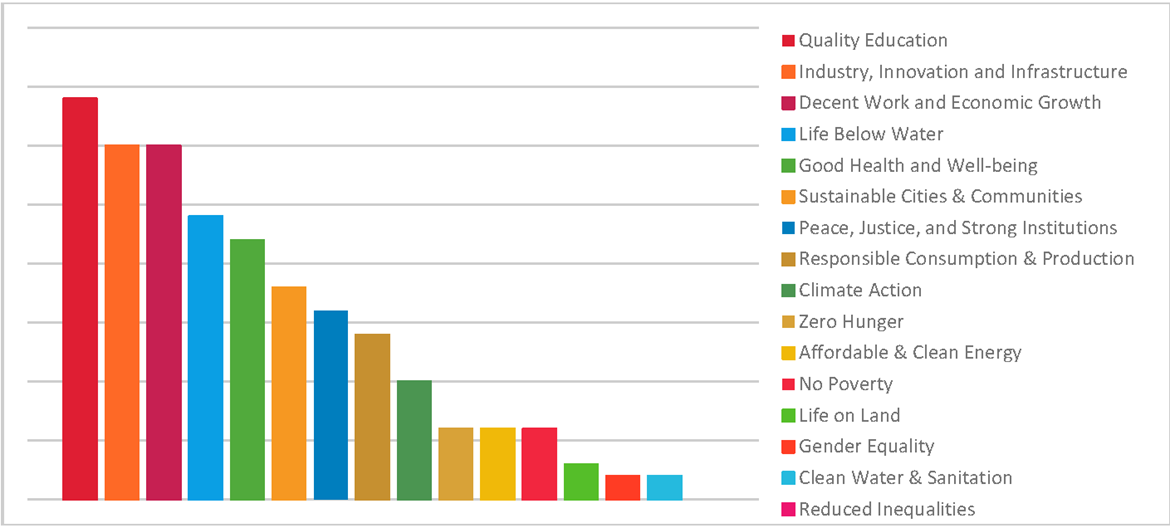
Mapping and Tracking MANDELA UNIVERSITY Alignment with African and Global Sustainability Agendas
To review and track the university’s alignment with their intent to support an African and Global vision of sustainability, Nelson Mandela University has implemented an extensive mapping exercise and a deliberate tracking process to assess and monitor the extent to which the university’s research strategies and initiatives support this vision. Further to this high-level mapping to assess alignment with both the Africa 2063 agenda and the National Development Goals 2030 has also been carried out. To date, this exercise has revealed that Nelson Mandela University already has strong alignment with the sustainability vision at all these levels. These strong alignments are showcased in research, local and international partnership projects, outreach initiatives and publications. This can be seen in the following diagram which illustrates the alignment of Nelson Mandela University research projects and initiatives with the SDGs.

The University approaches sustainability in a holistic manner through the interplay between ecological, social and economic dimensions, recognising that all must be considered together. Working to achieve sustainability is a continuous process in all disciplines and in the many aspects of university life, including our campuses and the larger community in which the University is situated. Sustainability principles are embedded in the teaching and learning, research and innovation, and engagement activities of our programmes, research chairs and entities. For example, the activities of the Coastal and Marine Institute, Marine Spatial Planning, the Sustainability Research Unit, Centre for African Conservation Ecology and AEON are underpinned by a social and environmental sustainability approach. Emphasis is placed on maintaining ecological integrity, with natural resources only used or consumed to the point that they can replenish themselves.